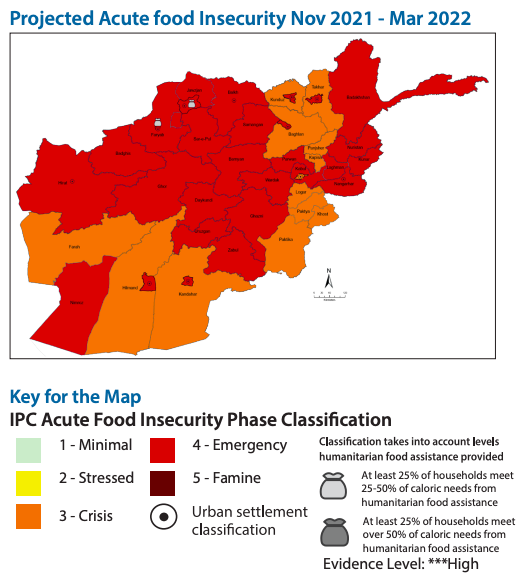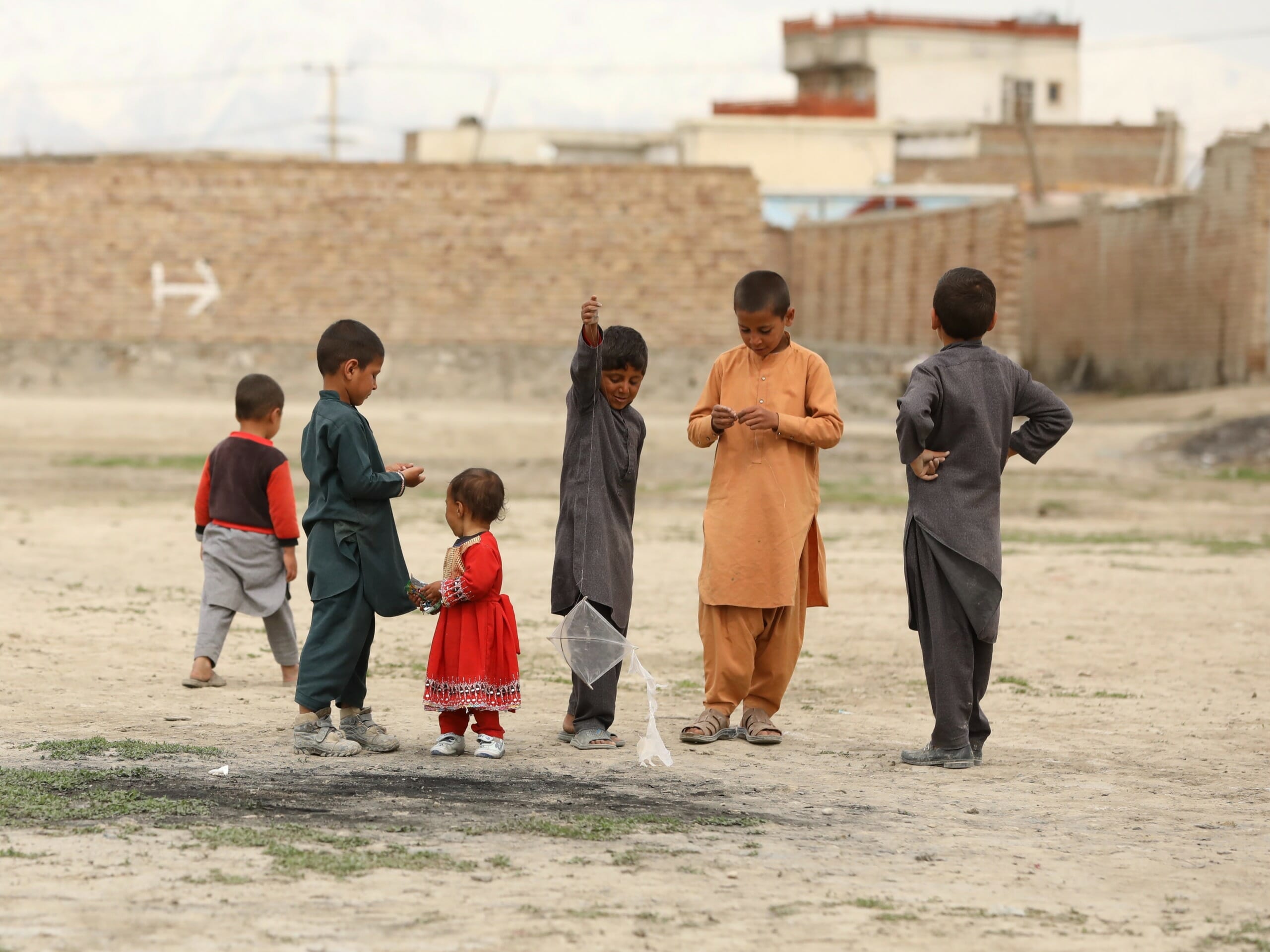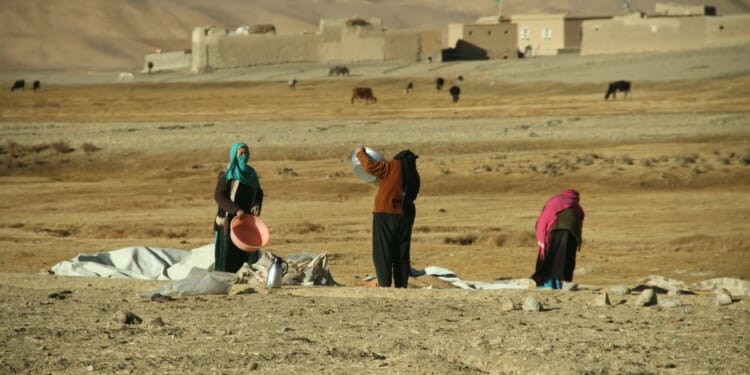Afghanistan is about to experience its worst drought in decades, hitting 25 out of the country’s 34 provinces, exacerbating the already severe famine crisis in the country. In rural areas, where roughly 70% of the population lives, many farmers have given up on cultivating their land as a result of dried irrigation channels, withered fields and starved farm animals.
Between the months of September and October, already 18.8 million – or 40% of the population – were facing high levels of food insecurity, a 30% increase from the same time last year. With the harsh winter coming ahead, a projected 22.8 million (55% of total population) are expected to face potentially life-threatening levels of food insecurity.

Afghanistan’s mass starvation threatens to kill a million children this winter if their needs are not met, a UN official declares.
U.N. IPC experts are blaming the continuing La Niña climatic episode bringing below-average winter precipitation for the second consecutive year. As a result of climate change, FAO warns droughts could become more frequent and more intense, causing the displacement of thousands and millions more people.
Along with conflict and fighting, the drought has contributed to driving more than 700,000 people from their homes. Climate-induced migration in Afghanistan is set to only get worse year-by-year with global warming increasing.
Economic collapse happening ‘before our eyes,’ says U.N
The current droughts are only one of the devastating signs of the economic crash that has crippled Afghanistan since the Taliban seized power in August 2021. Since the takeover, international funds ceased, the United States effectively froze $9.5 billion in Afghan central bank assets isolating the country from the global financial system, and impeded relief work by humanitarian organisations.
"We're also seeing an economic collapse that is almost without precedent"@UNDP Administrator @ASteiner tells #CNN that #Afghanistan's financial and banking system has virtually collapsed. pic.twitter.com/VosZVv3lIS
— Connect the World (@CNNConnect) December 8, 2021
Afghanistan’s banking system has suffered severe disruptions, and the national currency has lost 12.5% of its values. As a result, millions of Afghans have gone months without steady or any incomes, unemployment is increasing, and the prices of food and other basic goods have soared beyond the reach of many families.
Afghanistan’s nominal GDP is likely to contract by 20% within a year, from $20 billion in 2020, to $16 billion, according to a new socio-economic report by the United Nations development Programme. The report warns the figure may decline even further, leaving the country’s economic base already too slim to support its population.
Related Articles: The Internal Climate Migration Crisis: Tens of Millions to be Displaced in East Africa by 2050 | Humanitarian Crisis in Yemen Has Millions ‘One Step Away’ From Famine
It is important to note that the economic collapse is not just impacting the poorest but the country as a whole. It has effectively also destroyed the fledgling middle class that emerged in the last two decades. Public employees, small businessmen, freelancers, or journalists are facing unprecedented economic insecurity, not knowing whether they will have enough money to feed their children this winter.

Women are also facing some of the harshest realities, with their education and employment being stripped away from them overnight, not aiding the economic situation. The UNDP reports that restricting women from working could result in an immediate economic loss of up to $1 billion – or 5% of the country’s GDP.
The Taliban government and international humanitarian aid groups are pressuring the US and other Western donors to ease the economic restrictions in the face of a growing humanitarian disaster. Since the Taliban takeover, the West has been grappling with delicate questions over how to avert a humanitarian catastrophe all whilst not insinuating Taliban legitimacy.
“We need to separate the politics from the humanitarian imperative,” said Mary-Ellen McGroarty, The World Food Program’s Country director for Afghanistan. “The millions of women, of children, of men in the current crisis in Afghanistan are innocent people are who are being condemned to a winter of absolute desperation and potentially death”
American officials have shown some flexibility last week when the World Bank – which includes the US – moved to free up $280 million in frozen donor funding for the World Food Program and UNICEF. Although this is just a slight portion out of the $1.5 billion frozen funding by the World Bank.
Amidst a growing humanitarian crisis brought about by enduring and worsening droughts as well as a crippling economic situation, the world must set aside its politics and aid those most in need to avert a catastrophe. The West should unfreeze funds that would be directed towards relief, whilst maintaining the Taliban’s economic isolation from global systems if it wishes to maintain the discourse of Taliban illegitimacy.
Editor’s Note: The opinions expressed here by Impakter.com columnists are their own, not those of Impakter.com. — In the Featured Photo: Women in Afghanistan. Featured Photo Credit: Farid Ershad.










